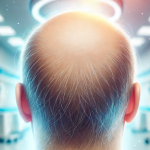Gastroesophageal reflux disease (GERD) is a chronic condition in which stomach contents flow back into the esophagus, causing discomfort and damage to the mucous lining. The main symptoms of gastroesophageal reflux disease can vary in intensity and frequency, and recognizing them early is important to seek medical advice and start treatment.
Main Symptoms of Gastroesophageal Reflux Disease
- Heartburn
Heartburn is one of the most common symptoms of GERD, characterized by a burning sensation in the chest, especially after eating or when bending over. Heartburn occurs due to the effect of stomach acid on the esophageal lining. This symptom may worsen when lying down or after consuming certain foods, such as fatty or spicy dishes.
- Sour Taste in the Mouth
A sour taste in the mouth is another common sign of GERD. This sensation is caused by stomach contents entering the mouth and is often accompanied by a bitter or acidic taste. This symptom may appear after eating and persist for several hours.
- Burping
Burping occurs as air enters the esophagus along with stomach acid. Patients with GERD may experience frequent burping, especially after meals. In some cases, burping is accompanied by an unpleasant taste or smell.
- Chest Pain

Chest pain may sometimes be caused by GERD and can resemble heart-related symptoms. This pain is due to irritation of the esophagus by acid and may feel like pressure or burning behind the sternum. If chest pain occurs, it is important to consult a doctor to rule out heart disease.
- Dysphagia (Difficulty Swallowing)
Dysphagia is a sensation of difficulty in swallowing. In GERD patients, this may be due to inflammation and swelling of the esophagus, making swallowing difficult. Dysphagia is a concerning symptom, and it’s recommended to see a doctor if it appears.
- Chronic Cough and Hoarseness
Chronic cough and hoarseness may result from irritation of the vocal cords and upper respiratory tract by stomach acid. These symptoms often appear in the morning and may persist without treatment.
GERD Diagnosis
To diagnose GERD, doctors use several methods, including endoscopy, pH monitoring in the esophagus, and esophageal manometry. These procedures help assess esophageal damage and acidity levels. If GERD symptoms are present, it’s advisable to consult a gastroenterologist for an accurate diagnosis and treatment plan.
GERD Treatment

Treatment of gastroesophageal reflux disease may include lifestyle changes, dietary adjustments, and medications, such as proton pump inhibitors and antacids. In some cases, surgical intervention may be recommended by the doctor.
Gastroesophageal Reflux: Causes, Symptoms, Diagnosis, and Treatment
Gastroesophageal reflux (GER) occurs when stomach acid or bile flows back into the esophagus, causing irritation and discomfort. While occasional reflux is common, frequent episodes may indicate gastroesophageal reflux disease (GERD), a chronic condition that can significantly impact quality of life. GER affects millions worldwide, often leading to symptoms such as heartburn, regurgitation, and difficulty swallowing. Understanding the causes, symptoms, and available treatments is key to effective management and relief.
The primary cause of GER is a malfunction of the lower esophageal sphincter (LES), a muscle at the bottom of the esophagus that acts as a valve to prevent stomach contents from flowing backward. When the LES is weak or relaxes inappropriately, acid can escape into the esophagus. Contributing factors include obesity, smoking, pregnancy, and certain dietary habits, such as consuming spicy or fatty foods, caffeine, or alcohol. Other conditions, such as hiatal hernia, where part of the stomach pushes through the diaphragm, can increase the likelihood of reflux. Medications, including NSAIDs and certain muscle relaxants, may also exacerbate GER symptoms.
Common symptoms of GER include heartburn, a burning sensation in the chest that often worsens after eating or lying down. Regurgitation, where stomach contents or acid flow back into the throat or mouth, is another frequent complaint. Many individuals also experience difficulty swallowing (dysphagia) or the sensation of a lump in the throat (globus sensation). Chronic GER may lead to a persistent cough, hoarseness, or sore throat, as stomach acid irritates the upper respiratory tract. In severe cases, untreated GER can cause complications, such as esophagitis (inflammation of the esophagus), strictures (narrowing of the esophagus), or Barrett’s esophagus, a condition that increases the risk of esophageal cancer.
Diagnosing GER typically begins with a review of symptoms and medical history. Physicians may recommend lifestyle modifications or over-the-counter treatments to determine if symptoms improve. Persistent or severe cases require further evaluation through diagnostic tests. An upper endoscopy allows direct visualization of the esophagus to check for inflammation or damage and to collect tissue samples if necessary. Ambulatory acid monitoring, such as pH testing, measures acid levels in the esophagus over 24 hours to confirm reflux. Barium swallow X-rays or esophageal manometry, which measures esophageal muscle function, may also be performed.
Treatment for GER aims to reduce symptoms, heal the esophagus, and prevent complications. Lifestyle changes are often the first step in managing GER. These include maintaining a healthy weight, avoiding trigger foods and beverages, eating smaller meals, and waiting at least two to three hours before lying down after eating. Elevating the head of the bed can help reduce nighttime symptoms.
Medications are commonly used to control GER symptoms and reduce acid production. Antacids, available over-the-counter, provide quick relief by neutralizing stomach acid. H2 receptor blockers, such as ranitidine or famotidine, reduce acid production and offer longer-lasting relief. Proton pump inhibitors (PPIs), like omeprazole or esomeprazole, are more effective for healing esophageal damage and managing chronic GER symptoms. In cases of severe GER or when medications are ineffective, surgical intervention may be necessary. The most common procedure, fundoplication, strengthens the LES by wrapping the top of the stomach around the lower esophagus. Newer techniques, such as magnetic sphincter augmentation, are also available for selected patients.
Preventing GER involves adopting healthy habits and avoiding known triggers. A balanced diet, regular exercise, and weight management reduce the risk of reflux. Limiting alcohol, caffeine, and tobacco use further supports digestive health. For individuals with chronic GER or GERD, regular follow-up with a healthcare provider ensures early detection and treatment of complications.
In conclusion, gastroesophageal reflux is a manageable condition with the right combination of lifestyle changes, medications, and, in some cases, surgical interventions. Early recognition and proactive management are essential to prevent complications and improve quality of life. By understanding the triggers and adopting preventive measures, individuals can effectively control GER symptoms and maintain digestive health.
Conclusion
Symptoms of gastroesophageal reflux disease include heartburn, sour taste in the mouth, burping, chest pain, dysphagia, chronic cough, and hoarseness. If you experience these signs, it’s recommended to consult a doctor to confirm the diagnosis and start treatment. Timely intervention helps reduce the risk of complications and improves the patient’s quality of life.
















